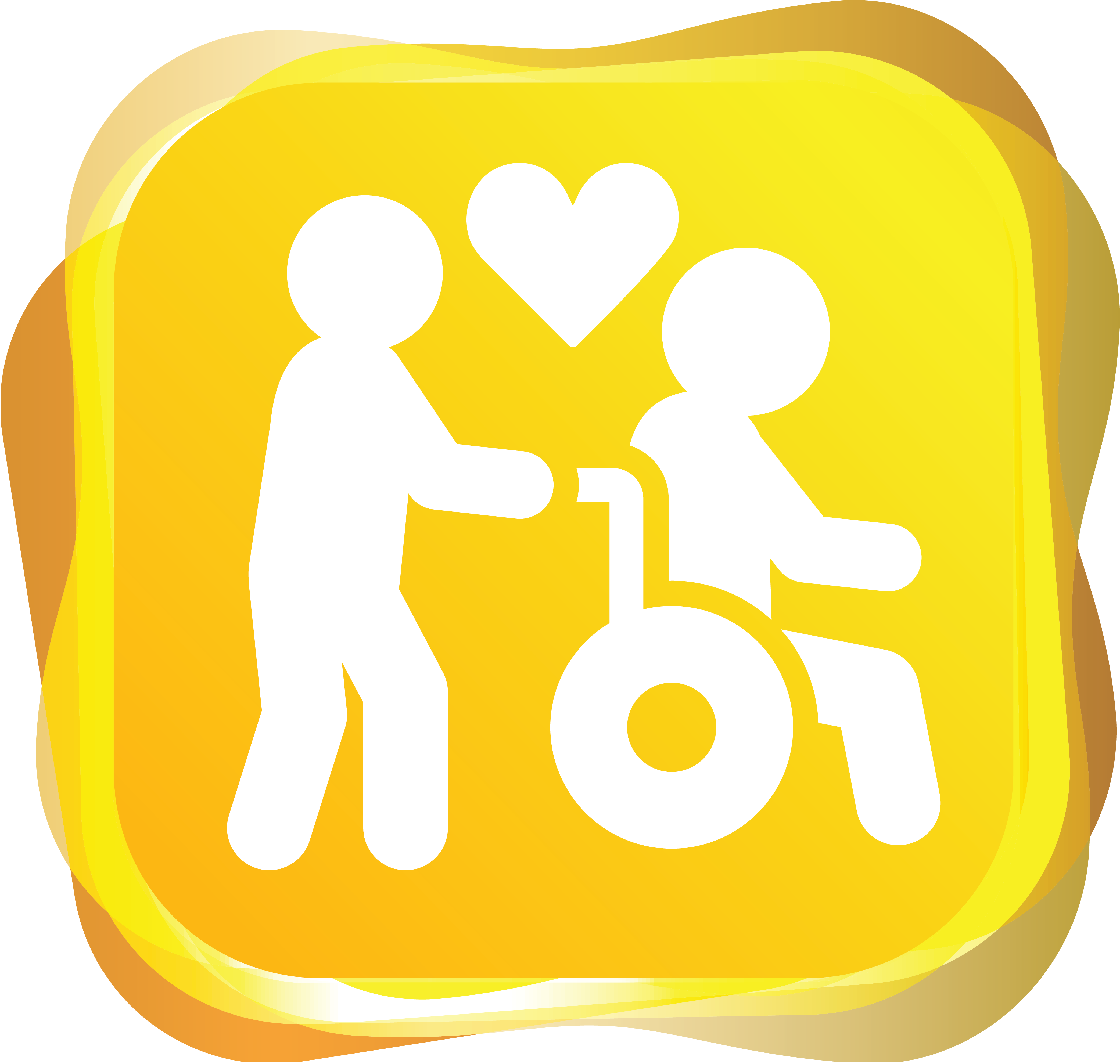 |
CCHU9092 Arts and Humanities
|
Course Description
This course will introduce you to the interdisciplinary field of Disability Studies. It is about how physical, intellectual, and psychiatric variations among human beings become “disabilities” that result in prejudice and discrimination, but also, sometimes, accommodation and care.
The course will lay the groundwork for a critical approach to how understandings about and practices associated with disabled people have changed over time and continue to be modified; how such understandings and practices vary cross-culturally; the consequences of language and labelling in relation to disablement; and how disability and disabled people are represented in popular culture, academic literature, and activism.
The course will facilitate your awareness about how social attitudes, policies and practices disable certain individuals. It will highlight the consequences of those disabling processes, both for the people most directly affected by them and for society as a whole.

Course Learning Outcomes
On completing the course, students will be able to:
-
- Develop an understanding of historical and contemporary theories and ideas about disability and processes of disablement, about ethics and responsibility, and about the role that language plays in that engagement.
- Learn to evaluate how different forms of impairment impact on different individuals in different ways, and how cultural perceptions and social structures influence that impact.
- Develop the ability to discuss and analyse how the meanings of disability have changed and continue to change: i) the way people with impairments are regarded and treated; ii) how political activism has and continues to change how disability is regarded and treated; and iii) the meaning and role of ethics and ethical engagement.
- Develop confidence in deploying the elements of good analysis, including: i) identifying a problem; ii) making a defensible claim; iii) supporting a claim with evidence; iv) articulating the assumptions and inferences that link evidence to a claim; and v) providing a motive for their argument.
- Develop their own writing and presentation style and organization, achieving coherence and clarity of argument, and build skills in the different modes of oral and written argumentation and analysis, including: i) close reading for argument; ii) research arguments and analysis; and iii) reflective thinking and cultural criticism.
Offer Semester and Day of Teaching
First semester (Wed)
Study Load
| Activities | Number of hours |
| Lectures | 24 |
| Tutorials | 12 |
| Reading / Self-study | 50 |
| Film viewing | 5 |
| Assessment: Essay / Report writing | 20 |
| Assessment: Presentation (incl preparation) | 15 |
| Total: | 126 |
Assessment: 100% coursework
| Assessment Tasks | Weighting |
| Participation in classroom activities | 30 |
| First paper | 25 |
| Second paper | 25 |
| Group presentation | 20 |
Required Reading
Weekly critical readings – selections from:
- Allirajah, D. (2013). Oscar Pistorius: when good metaphors turn bad. Spiked. From https://www.spiked-online.com/2013/02/28/oscar-pistorius-when-good-metaphors-turn-bad/
- Archibald, L. (2021). Mad in America: the language we use reflects our desire for change. From https://www.madinamerica.com/2021/09/mad-activists-langauge/
- Barnes, C. (2020). Understanding the Social Model of Disability: Past, Present and Future. In N. Watson & S. Vehmas (Eds.), Routledge Handbook of Disability studies, pp. 14-31. London: Routledge.
- Bogdan, R. (1996). The Social Construction of Freaks. In R. Garland-Thomson (Ed.), Freakery: Cultural Spectacles of the Extraordinary Body, pp. 23-37. New York: NYU Press.
- Botha, M., & Dibb, B., & Frost, D. M. (2022). “Autism is me”: an investigation of how autistic individuals make sense of autism and stigma. Disability & Society, 37(3), 427-453. From https://doi.org/10.1080/09687599.2020.1822782
- Brocco, G. (2015). Labeling albinism: language and discourse surrounding people with albinism in Tanzania. Disability & Society, 30(8), 1143-1157. From https://doi.org/10.1080/09687599.2015.1075869
- Brown, S. (1996). Super Duper? The (Unfortunate) Ascendancy of Christopher Reeve. From https://www.independentliving.org/docs3/brown96c.html
- Christopher Reeve is was an asshole. From http://www.thebestpageintheuniverse.net/c.cgi?u=creeve
- Evans, B. (2013, July). How autism became autism: The radical transformation of a central concept of child development in Britain. Hist Human Sci, 26(3), 3-31. PMID: 24014081; PMCID: PMC3757918. From https://doi.org/10.1177/0952695113484320
- Goffman, I. (1968). Stigma. Penguin, Harmondsworth. [Selections]
- Goodley, D. (2017). Dis/entangling Critical Disability Studies. Culture-Theory-Disability: Encounters between Disability Studies and Cultural Studies.
- Gorman, R., & LeFrançois, B. A. (2017). Mad studies. In B. M. Z. Cohen (Ed.), Routledge International Handbook of Critical Mental Health, pp. 107-113. London: Routledge.
- Gottlieb, N. (2001). Language and Disability in Japan. Disability & Society, 16(7), 981-1995. From https://doi.org/10.1080/09687590120097863
- Grandin, T., & Johnson, C. (2005). Animals in Translation: the woman who thinks like a cow. London: Bloomsbury. [Selections]
- Heumann, J., & Joiner, K. (2020). Being Heumann: an unrepentant memoir of a disability rights activist. New York: Penguin. [Selections]
- Kailes, J. I. (2010). Language is More Than a Trivial Concern! (10th ed.). Harris Family Center for Disability and Health Policy. From https://www.resourcesforintegratedcare.com/sites/default/files/Language%20Is%20More%20Than%20A%20Trivial%20Concern.pdf
- Knapp, G. (2021). Among Paralympians, A Lively Conversation About ‘Inspiration Porn’. The New York Times. From https://www.nytimes.com/2021/09/05/sports/olympics/inspiration-porn-paralympians-know-it-when-they-see-it.html
- Kulick, D. (2022). Butler and Political (In)Correctness. In N. Bubandt & T. T. S. Wentzer (Eds.), Philosophy on Fieldwork: Critical Introductions to Theory and Analysis in Anthropological Practice, pp. 118-137. Routledge.
- Kulick, D. (2024). The line between “laughing with” and “laughing at” people with disabilities: Love on the Spectrum and Derek.
- Kulick, D., & Rydström, J. (2015). Loneliness and its Opposite: sex, disability and the ethics of engagement. Durham & London: Duke University Press. [Selections]
- Lauterman, S. (2021). The Ignominious Deceits of Congressman Cawthorn. The Nation. From https://www.thenation.com/article/politics/madison-cawthorn-paralympics/
- McRuer, R. (2006). Crip theory: cultural signs of queerness and disability. New York: NYU Press. [Selections]
- Mohamed, K., & Shefer, T. (2015). Gendering disability and disabling gender: Critical reflections on intersections of gender and disability. Agenda, 29(2), 2-13.
- Peace, W. (2012). The Reeve school of paralysis. From http://badcripple.blogspot.com/2012/02/reeve-school-of-paralysis.html
- Peace, W. (2013). Oscar Pistorius, Helen Keller and the problem with role models. From http://badcripple.blogspot.com/2013/02/oscar-pistorius-helen-keller-and.html
- Pulrang, A. (2019). How To Avoid “Inspiration Porn”. Forbes. From https://www.forbes.com/sites/andrewpulrang/2019/11/29/how-to-avoid-inspiration-porn/?sh=4483cdc25b3d
- Qu, Y. (2020). Understanding the body and disability in Chinese contexts. Disability & Society, 35(5), 738-759. From https://doi.org/10.1080/09687599.2019.1649123
- Reeve, C. (1999). Still Me. Ballantine Books. [Selections]
- Schweik, S. (2009). The Ugly Laws: disability in public. New York: New York University Press. [Introduction (pp. 1-20)]
- Shakespeare, & Watson, N. (2001). The Social Model of Disability: An outdated ideology? Exploring Theories and Expanding Methodologies: Research in Social Science and Disability, 2, 9-28.
- Shakespeare, T. & Watson, N. (2022). Frameworks, models, theories, and experiences for understanding disability. In R. Brown, M. Maroto & D. Pettinicchio (Eds.), The Oxford Handbook of the Sociology of Disability. Oxford University Press.
- Shakespeare, T. (2004). Christopher Reeve: you’ll believe a man can walk. BBC Ouch! Blog. From http://www.bbc.co.uk/ouch/features/christopher-reeve-you-ll-believe-a-man-can-walk.shtml
- Shakespeare, T. (2014). Disability Rights and Wrongs Revisited. [Selections]
- Sjöström, S. (2017). Labelling theory. In B. M. Z. Cohen (Ed.), Routledge International Handbook of Critical Mental Health, pp. 15-23. London: Routledge.
- Taylor, S. (2017). Beasts of Burden: animal and disability liberation. New York: The New Press. [Selections]
- Thomas, C. (2004). How is disability understood? An examination of sociological approaches. Disability & society, 19(6), 569-583.
- Trent, J. (2017). Inventing the Feeble Mind: A History of Intellectual Disability in the United States. Oxford: Oxford University Press. [Parts of chap. 7 “The Remaking of Intellectual”]
- White, K. (2017). The social construction of mental illness. In B. M. Z. Cohen, Routledge International Handbook of Critical Mental Health, pp. 24-30. London: Routledge.
- Young, S. (2014). I’m not your inspiration, thank you very much. From https://www.ted.com/talks/stella_young_i_m_not_your_inspiration_thank_you_very_much
Required Viewing
- Browning, T. (Director). (1932). Freaks.
- LeBrecht, J., & Newnham, N. (Directors). (2020). Crip Camp.
Course Co-ordinator and Teacher(s)
| Course Co-ordinator | Contact |
| Professor D. Kuick School of English, Faculty of Arts |
Tel: 3917 2764 Email: dkulick@hku.hk |
| Teacher(s) | Contact |
| Professor D. Kuick School of English, Faculty of Arts |
Tel: 3917 2764 Email: dkulick@hku.hk |

